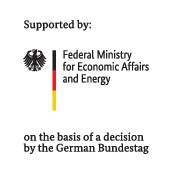Standard for the entire mechanical engineering sector
Overview
Currently, around 40 working groups in the VDMA are working on OPC UA Companion Specifications, and more than 600 companies in the industry are involved in the creation process.
Due to the central coordination in the VDMA, it turned out that some interface contents occur across industries. Accordingly, the idea arose to create a basic specification for the entire mechanical and plant engineering industry. This basic specification is called “OPC UA for Machinery”. On the one hand, it is to be used as a basis for existing and emerging companion specifications. On the other hand, machinery or equipment in mechanical engineering can use the contents of the specification if there is not yet a standardized OPC UA interface in their own industry.
To enable early adaptation, content is developed and published in so-called building blocks. This reduces the development time and thus enables content to be used that would otherwise not yet be available. Depending on requirements, only certain or all Building Blocks can also be used in the industry-specific Companion Specifications. This also applies to use without industry-specific Companion Specifications.
Technical content
The first Building Blocks have already been available to the public for some time. Each Building Block covers one use case. The first covered use cases are:
- Machine identification
- Component Identification
- Finding all machines in a server
- Finding all components of a machine
Furthermore, a new version of the OPC UA for Machinery specification has now been published as a draft. It is open for comments until March 1. It includes a new Building Block that lays the foundation for fulfilling the Machine Monitoring and KPI Calculations use cases. This deals with the status and operating mode of a machine and goes under the following name:
- Machine Status
In addition, the development of further Building Blocks is taking place in corresponding specialized working groups. The following topics are currently being addressed:
- Job Management
- Result Transfer
- Energy Monitoring
There are more topics that will be started in the future. These are defined via the roadmap, which is dynamically adapted to the needs of the domain-specific working groups. Some examples are:
- Tool Management
- Skills & Capabilities
- Operating Resource Management
- …
Documents
More Information
- OPC UA for Machinery in umati
Press material - Explanation of the first version on youtube
14 min Video “OPC UA for Machinery: Harmonization for the machinery industry” by Heiko Herden
23 min Video “OPC UA for Machinery: Technical Deep Dive into the Specification” by Timo Helfrich - OPC UA for Machinery in the OPC Foundation Podcast
Spotify, Apple Podcasts, Google Podcasts
Contact
- Heiko Herden
VDMA e.V.
Lyoner Straße 18, 60528 Frankfurt am Main
Telefon +49 69 6603-1315
E-Mail heiko.herden@vdma.org




